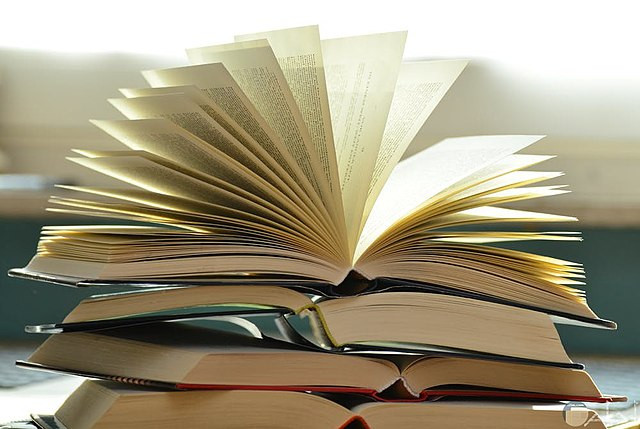You’re banning the wrong books
Discard titles based on content and authorship, for the right reasons
Supplied photo
“A popular book that gets checked out often begins to fall apart in a year,” Susan Orlean writes in The Library Book. “Library books that are rare or expensive are sent to private restorers if they need emergency surgery. Ordinary books that start to fall apart are simply thrown out, and new copies are bought in their place.”
In my school’s library, books damaged beyond repair are discarded. Once-popular titles that start to collect dust are donated. I spent part of last semester weeding through the non-fiction section, removing any reference books that didn’t list Nunavut as a territory or described wind turbines as a new technology.
This isn’t censorship. It’s simply keeping up with the times. Books that are no longer accurate or together in one piece won’t help a student who needs to research a topic or find something to read on the bus.
But across the continent, libraries are removing titles for entirely different reasons. According to a PEN America report, 2,532 book bans were enacted in schools across the United States during the 2021-22 school year. PEN America defines a school book ban as “any action taken against a book based on its content” as a result of parent, community, administrative or legal challenges.
Many of the banned titles feature protagonists who are queer, racialized or both. Others discuss “race and racism in American history, LGBTQ+ identities or sex education.”
These targeted bans have “multifaceted, harmful impacts on students, who have a right to access a diverse range of stories and perspectives, and especially on those from historically marginalized backgrounds who are watching their library shelves emptied of books that reflect and speak to them.”
While the situation in Canada may not seem as dire, book bans happen here, too. Earlier this year, an Ontario school division temporarily removed The Great Bear from its libraries’ shelves.
Written by Winnipeg-based Cree author David A. Robertson, the book is the second in an Indigenous fantasy series called the Misewa Saga. When interviewed by CTV, Robertson said the division was “pretty secretive and evasive” about why it considered the middle-grade novel controversial.
In May, CBC reported that Canadian poet Rupi Kaur’s debut collection milk and honey was “under fire” in Texas, likely because the book “is partly inspired by her experience with sexual assault and gender-based violence.”
“Every time we ban a book, we diminish ourselves,” The Toronto Star editorial board titled an op-ed in early 2022. That’s true when bans limit access to accurate information, relatable characters and shared experiences. It doesn’t, however, extend to “recently challenged works” like “everything ever written or spoken by Bill Cosby.”
Sexual predators’ works have no place in school libraries – or public ones, for that matter. But the already-hazy line blurs even further on other issues.
From 2000 to 2009, the Harry Potter series topped the American Library Association’s list of banned and challenged books. The youngadult fantasy novels depict witchcraft and allegedly contain “actual curses and spells.”
A decade later, some booksellers and librarians debate whether to carry the titles for entirely different reasons. Readers have called out author J.K. Rowling’s documented transphobia, as well as anti-Semitic descriptions and racist naming conventions within the original texts.
I’ve had uncomfortable but crucial discussions with my school’s librarian about whether to remove Rowling’s works. For now, they remain in circulation, at eye level, and are among the library’s most-requested titles.
In a perennial balancing act, we don’t want to discourage excited young readers, but we don’t want to expose them to harmful content and authors.
We spoke about overhauling the library’s “explorers” section and replacing inaccurate, offensive books about colonists John Cabot, Jacques Cartier and Samuel de Champlain with accounts written by and about Indigenous people.
This Black History Month, the library will hopefully have enough new titles that showcase joy and everyday experiences alongside stories about trauma.
But it’s not enough. Librarians, students, guardians and communities must continue to push back against senseless content bans. At the same time, however, everyone involved with classroom, school and public libraries needs to take stock of their inventories and decide whether titles and authors truly serve their readers.
It’s a seemingly impossible task. But if anyone can accomplish this, it’s the librarians, booksellers, publishers and readers who have collectively fought bans for more than a century.
A former sports broadcaster, Danielle Doiron is now a writer, editor and educator. Find them in Winnipeg, Philadelphia, Fargo and, occasionally, on the airwaves.
Published in Volume 77, Number 06 of The Uniter (October 20, 2022)







